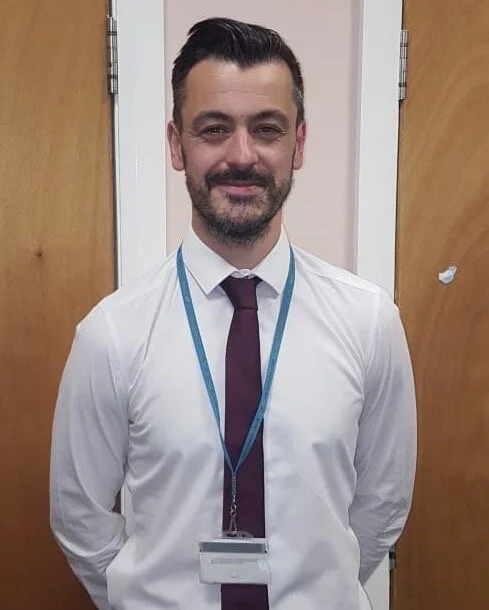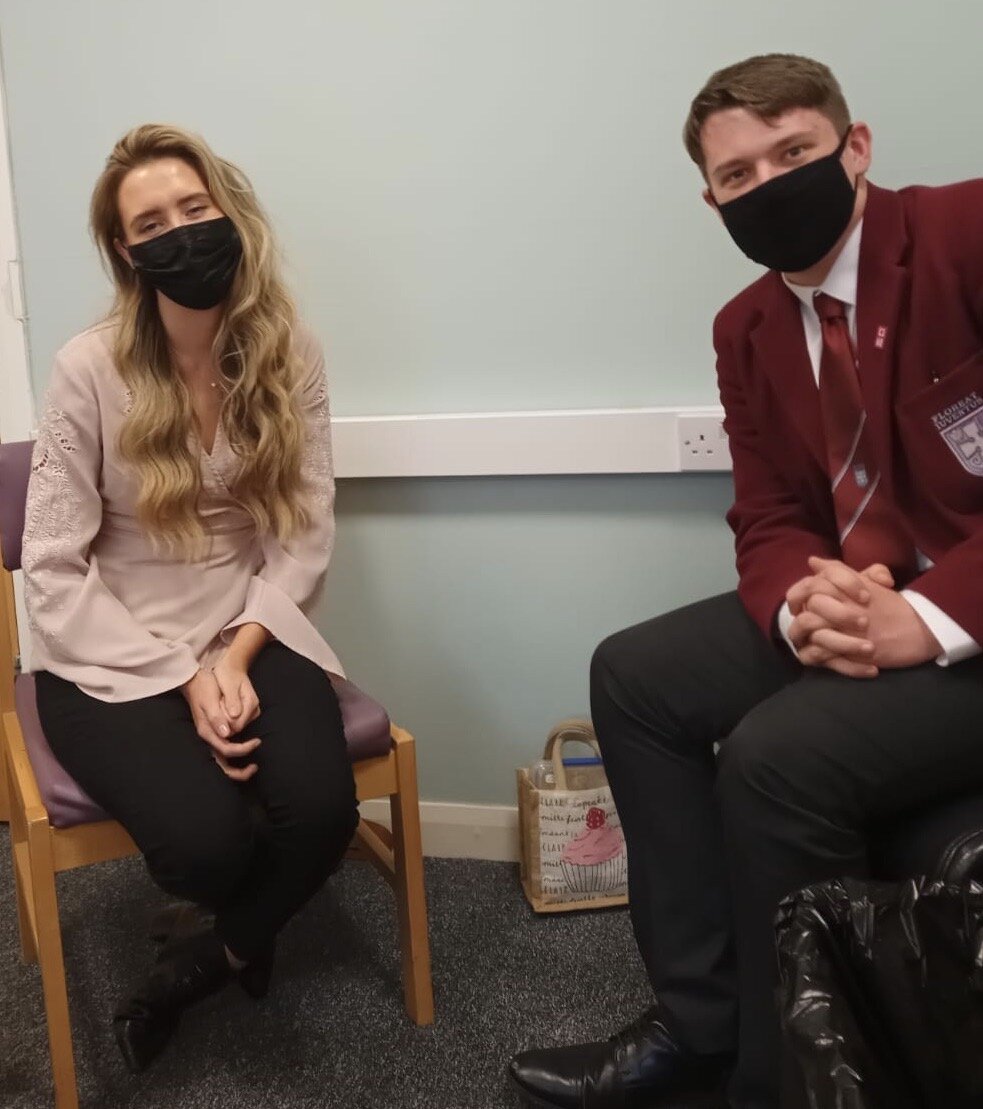Meet The Mental Health First Aiders - they're here to help
Interviews by Anna McIlvaney and Luke Campbell
Many thanks to Mr Gallagher, Mr Downie, and Mrs McAnenay from St Ninian’s High School for allowing us to question them!
Luke Campbell and Anna McIllvaney interview Mr Gallagher
The following statements refer to the process of contacting and speaking with the Mental Health First Aiders at St. Ninian’s High School in East Renfrewshire - your school may work differently. If so, please ask your teachers about mental health first aiders and see how they operate in your school.
What are Mental Health First Aiders?
If you were injured, a first aid response (such as an ambulance) would be called to help you. This quick response to physical health problems isn’t available for mental health issues, despite them being just as serious and valid and, therefore, the Mental Health First Aiders are our primary connection for psychological help within schools. They provide a safe space for us to talk to them about what is troubling us and work with us to find possible solutions.
So, how can we access these services?
Most people who reach out to the Mental Health First Aiders go through their Pastoral Support teachers who can organise a meeting with a First Aider. This is the smoothest method as your pastoral teacher can direct you towards the many different staff members available. Everyone has the choice of which First Aider they speak to - it could be a teacher you’ve had previously and know, or someone completely new. It is up to you… who would you feel most comfortable approaching?
However, other students prefer to approach a teacher directly during class or clubs, or any other links they have.
You can find photos of each Mental Health First Aider on the wall outside the Pastoral Base with their name and where you can find them during the school day. Some teachers, such as Mrs McAnenay, can be found in the cafeteria during lunchtimes every day – don’t be afraid to approach them!
Furthermore, you should look out for events, such as the ‘Hot Choc & Talk’ drop-in session, as they allow students to meet the teachers who are involved with students’ mental health! Some of the teachers talk to parents at Parents’ Evening and discuss the work that the Mental Health First Aiders do, encouraging them to speak to their children about their emotional health and the support systems that the school have in place.
How do we communicate with the First Aiders?
The Mental Health First Aiders primarily have a conversation with anyone who reaches out; the first session is used to get to know you as a person (not only what’s troubling you, but also what you enjoy, what you are interested in), and you get to know the teacher. After this, they then support you however they can - whether it be simply offering advice or more. The process is different for everyone and what helps people varies.
How has the COVID-19 pandemic affected the mental health and support services for young people?
It is clear that the lack of social interaction over the last year has led to an increase in loneliness and emotional problems in people of all ages, and yet, on the whole, young people have proven extremely resilient (more so than most adults have given us credit for!).
With the rise in mental illnesses over the past year, services such as CAMHS (Child and Adolescent Mental Health Services) are struggling to keep up with the influx of patients and the waiting lists are forever increasing. For this reason, we need Mental Health First Aiders in schools more than ever!
Before the lockdowns and restrictions, the Mental Health First Aiders would meet with any students they were dealing with for an hour each week. During the lockdowns, however, they had to communicate with the students via online programmes, such as Microsoft Teams or Zoom.
Many teachers would make a special effort to speak to these students every day; whether it be for a silly, distracting conversation or to discuss their mental wellbeing, they would check in daily. Mrs McAnenay would discuss their sleeping patterns, diet, hobbies and friendships, and tried to enforce a daily routine with each student. Why? Well, if you sleep in all day, your discipline takes a step back and it can negatively impact your mood. She would work with the students to create a structured day plan in the hopes of improving how they felt by giving them back control over their lives.
How can you tell if someone is struggling with their mental health? What can you do to understand them better?
As a First Aider and a pastoral teacher, Mr Gallagher can notice changes in behaviour in students who are struggling. In PSHE lessons, there are many open discussions about mental health, and we frequently fill out ‘wellbeing webs’ which allow pastoral teachers to discreetly tackle challenges their students face. These activities open different avenues to highlight challenges students are facing - for example, how secure and cared for we feel at school.
Do you have any advice for students?
Mr Downie says: Get started early. Yes, it’s the hardest thing to do, but you shouldn’t leave assignments or studying until the last minute – procrastinating will negatively affect you, mentally. Start working in small chunks early before a test, building up from 20 minutes a day until the day of your test. This will significantly decrease the pressure you feel before a test or exam, and you won’t have to cram the night before!
Furthermore, you should use the support of your teachers and take advantage of any resources they give you!
How do you give yourself a timeout from stress or negative feelings?
Like many, Mr Downie uses exercise as a management technique for stress, in particular, cycling. It is important that when he feels stressed, down or overwhelmed he gets out of the negative environment and listens to music, particularly positive music (like his personal favourite, Hard Times by Paramore!), for as long as he needs.
Like Mr Downie, Mrs McAnenay enjoys exercise when she feels stressed. When you’re worried, it can feel like it’s only you and the problem versus the world. You become far too fixated on the problem, and it can isolate you and cause you to feel overwhelmed. Something simple like a walk (which has been scientifically proven to be the most effective form of exercise!) can help put your problems into perspective, helps to make them less overwhelming.




